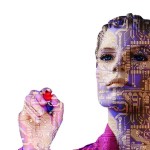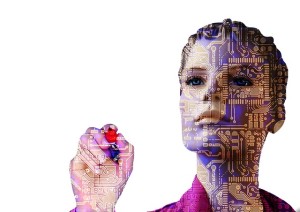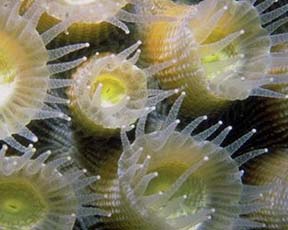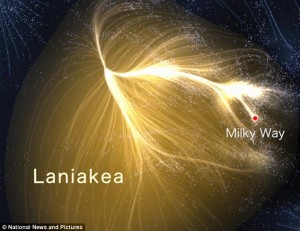Boundless consciousness?

I’m back with my second post of 2016 regarding consciousness. Hope it will be delightful.
Intelligences are multiple
Consciousness is not yet fully defined. As well as intelligence was until recently. The boundaries of intelligence were fluctuating across history and constantly redefined to ensure human superiority over other species. The tools to assess intelligence are often designed from our own abilities therefore fail at measuring other species intelligence.
However, we all now agree on various form of animal intelligences even in the human species. It was a long road before it became a consensus, harder than believe in multiple personalities traits which is actually intrinsically related.
What about consciousness?
Consciousness is hard to define due to lack of consensus. The definition I prefer is sentience, i.e. feeling as distinguished from perception or thought. One could also add self-awareness to the definition.
So what beings are conscious?
Basically all animals (including humans) are sentient and sometimes self-aware. Plants may also be conscious beings. Although that they don’t have neurons or glia, they possess structures that allow them to process information and react to environment or even plan actions.
“They have ways of taking all the sensory data they gather in their everyday lives … integrate it and then behave in an appropriate way in response. And they do this without brains, which, in a way, is what’s incredible about it, because we automatically assume you need a brain to process information.”; “that the line between plants and animals might be a little softer than we traditionally think of it as.” – Michael Pollan
More interestingly, we may have created artificial beings that are conscious. The neuroscientist Christof Koch speculated that the Web might have achieved sentience. Pretty freaky, right?
I personally consider that at least cluster of networked machines (with their software) or intelligent machines may be sentient. Especially ones that auto-monitor. Some people argue that any system that is unpredictable may actually be sentient.
The fact is that such system may fail at the Turing test because they are so different than us and their consciousness is so different than what we expect. Their sensory modalities may even not map what we see as inputs and outputs.
Since they process information and act, even particles may be conscious, by flashes. Hard to believe…
Are you talking about panpsychism?
Most of living scientists consider that considering non-human beings as conscious is panpsychism thus discarding it as pre-science. Panpsychism is the view that consciousness, mind or soul (psyche) is a universal and primordial feature of all things (to some degree).
This century marked a renewed interest in these hypothesis. Max Tegmark (MIT) argues that mater may be intrinsically conscious and a more restrictive scale have been invented to measure levels of consciousness of artificial agents.
An interesting conclusion
Depending of what frame of reference we consider, we may:
- Be surrounded by above suspicion conscious beings: from artificial intelligences (not that terminator-like we all think about those are maybe not conscious of us at all) and even superintelligences (if they exist) to inert chromosomes.
- Be living in a vast conscious system with a lot of subconscious entities.
The second option may be plausible since supercluster processes a lot of information as a complex system.
But the light speed limit tends to suggest a long scaled consciousness (if it exists) or consciousness at early stages of structures self-organisation only… although quantum entanglement or shared routines in a computational universe may also allow long-distance rapid information processing.


